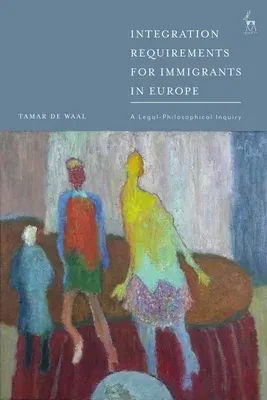Tamar de Waal
(Author)Integration Requirements for Immigrants in Europe: A Legal-Philosophical InquiryPaperback, 23 February 2023

Qty
1
Turbo
Ships in 2 - 3 days
In Stock
Free Delivery
Cash on Delivery
15 Days
Free Returns
Secure Checkout

Print Length
224 pages
Language
English
Publisher
Hart Publishing
Date Published
23 Feb 2023
ISBN-10
1509950079
ISBN-13
9781509950072
Description
Product Details
Author:
Book Format:
Paperback
Country of Origin:
US
Date Published:
23 February 2023
Dimensions:
23.39 x
15.6 x
0.99 cm
ISBN-10:
1509950079
ISBN-13:
9781509950072
Language:
English
Location:
New York
Pages:
224
Publisher:
Weight:
263.08 gm